How to Handle New Beginnings, According to Columbia Experts
As the school year kicks off, we asked Columbia researchers and staff how best to handle new endeavors. Here’s what they said.

As the school year gets underway, faculty, staff, and students are naturally wondering what the new year will bring and how to put their best foot forward. So Columbia News reached out to researchers and staff from across the university who focus on psychology and mental health to ask one simple question:
“What does your recent research tell you about the best way to prepare for new professional and personal beginnings?”
Here’s what they said.
Mistakes Are a Natural Part of the Learning Process
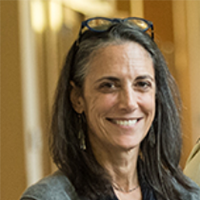
"New beginnings mean that you will be on a learning curve and mistakes are a natural part of the learning process. Our research has found that after making a mistake, people are more likely to be open to feedback and feel valued when they interact with others who are willing to share their own struggles. So, cultivate relationships with students and professors who are willing to share their struggles with you and learn together."
— Caryn Block, Professor of Psychology and Education, Chair, Department of Organization and Leadership, Teachers College, Columbia University
Connection Can Happen in Many Ways
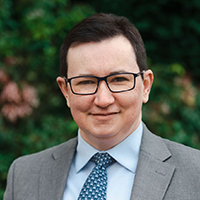
"An exciting part of starting college–or beginning anything new, really–is meeting new people and making friends. This is important for social well-being and building a support system around you.
"There is a perception, especially in popular culture, that socialization in college or grad school must include alcohol and that everyone drinks. In fact, recent data shows that not everyone chooses to drink alcohol and most of those who do (73%) drink in a low-risk manner (4 or fewer drinks).
RELATED CONTENT
"As they prepare to come to campus, incoming students should know there are so many ways to engage and connect with others, including clubs and student groups, where alcohol is not the focal point. Additionally, for those students in recovery, there is a Recovery Coalition."
— Alicia K. Czachowski, Senior Executive Director, Alice! Health Promotion, Columbia Health
Make Self-Care a Focal Point When Starting Anew
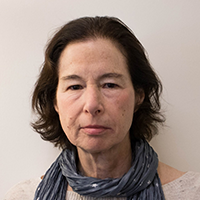
"Intentional focus on self-care, along with your focus on academics, is an excellent way to prepare for your journey at Columbia. There is overwhelming evidence—validated by our experience—that building social connections, regularly engaging in physical activity, and getting sufficient sleep will contribute to your academic success as well as to your emotional well-being. Also, remember that Columbia Health is here to support your personal and academic growth every step of the way."
— Anne Goldfield, Associate Director for Outreach and Community Clinical Services, Counseling and Psychological Services, Columbia Health
Acknowledge Your Capacity for Change
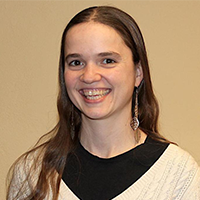
"Our research suggests that one good way to prepare for a new beginning is to acknowledge that both you yourself and others have the capacity for change. Holding on to the idea that people will always be who they are now shapes our attitudes and behaviors toward others, perhaps creating a self-fulfilling prophecy where people don't change much because others don't treat them like they can."
— Larisa Heiphetz Solomon, Assistant Professor of Psychology, Department of Psychology
The Foundation of Brain Development Is Based in Exploration
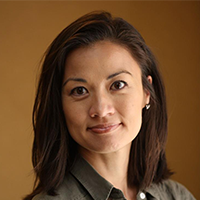
"My research over the last decade has shown that the foundation of personal growth and brain development is based in taking risks and exploring new environments, people, and activities.
"So go forth, new students, and let your brain develop!"
— Nim Tottenham, Chair, Department of Psychology
New Beginnings Offer the Chance to 'Explore Your Why'
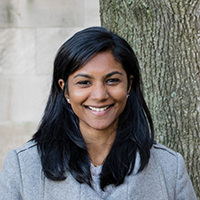
"Our practice at Columbia Health Alice! Health Promotion has focused on helping students understand how to balance their health and well-being as they transition into and continue life at Columbia. Given that students have a variety of lived experiences and multiple intersecting identities, new beginnings can include: new relationships, new intellectual curiosities, or even new perceived challenges or barriers.
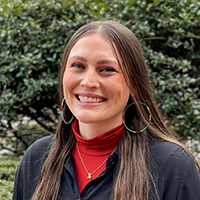
"From our experience as both researchers and providers within Columbia Health, students flourish when they prioritize their values throughout their experience. Living a life in alignment with your values creates opportunities to explore your 'why,' express meaning, and feel more connected to your purpose. As a result, students navigate the university with more confidence and authenticity because their decisions are both mindful and reflect what matters most to them. Living a life in alignment with your values also requires practice reframing or pivoting from a deficit lens ('what’s wrong') to an asset-based lens ('what’s going well'). Reflecting on how you have been resilient or successful in the past provides invaluable data to lean on as you navigate new beginnings.
"Students have the power to advance their well-being by approaching their new beginnings with intentionality."
— Padma Entsuah, Director of Well-Being and Health Promotion, and Jaclyn “Jaci” Hawkins, Director of Direct Services, Alice! Health Promotion, Columbia Health
And For Those Looking for a New Beginning in a Job...
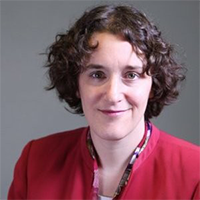
"My research has focused on the employment outcomes of public health graduates, labor market competition, and the effects of new funding on the public health workforce as a result of the Covid-19 pandemic, climate change, and other issues. I also directly advise public health students and graduates on their career decisions and job search strategy, and speak to many different employers who are seeking to hire these graduates.
"One suggestion for any job-seeking student is to work with a career development specialist within their school to clarify their career goals, including identifying their favorite skills or job tasks, topic areas, and key lifestyle values, and to then use job market information and informational interviewing to research their particular job market. Job markets can change rapidly due to economic factors and unexpected circumstances, like the public health job market did during Covid-19. Especially for job seekers looking for positions at organizations that receive federal funding, keeping an eye on legislation that impacts funding for your area of interest can be helpful in predicting which job markets are likely to be more competitive than others.
— Heather Krasna, Associate Dean, Career and Professional Development, Mailman School of Public Health